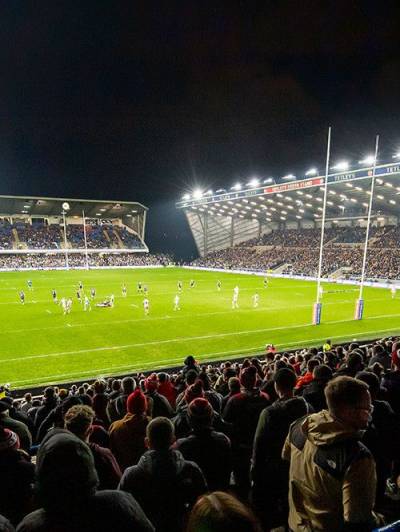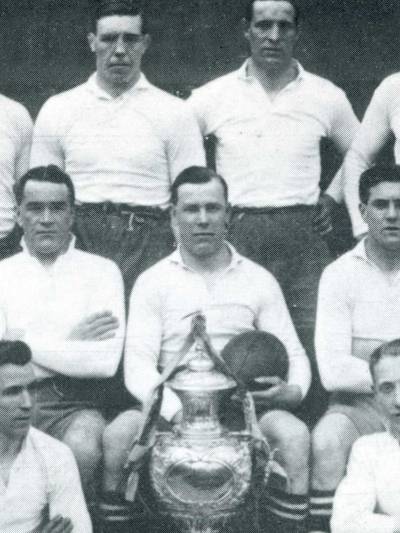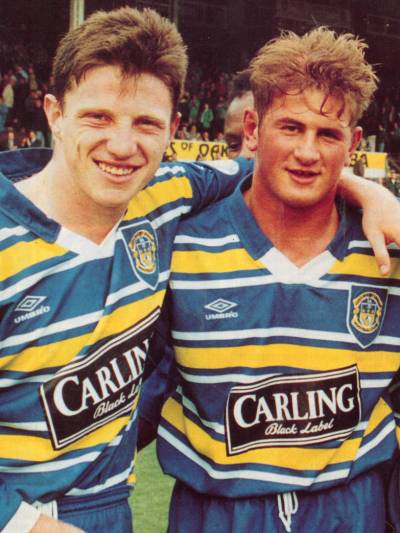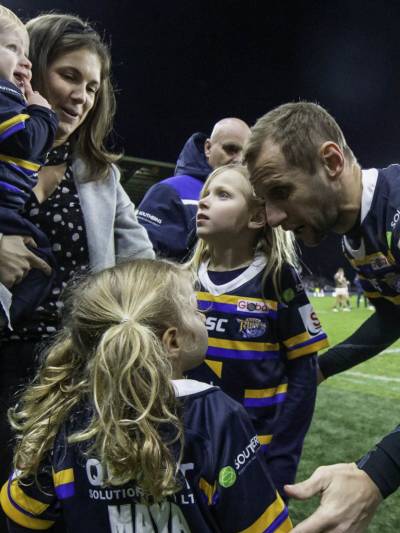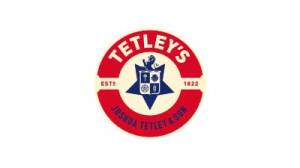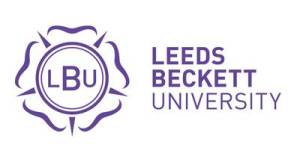1951-1952
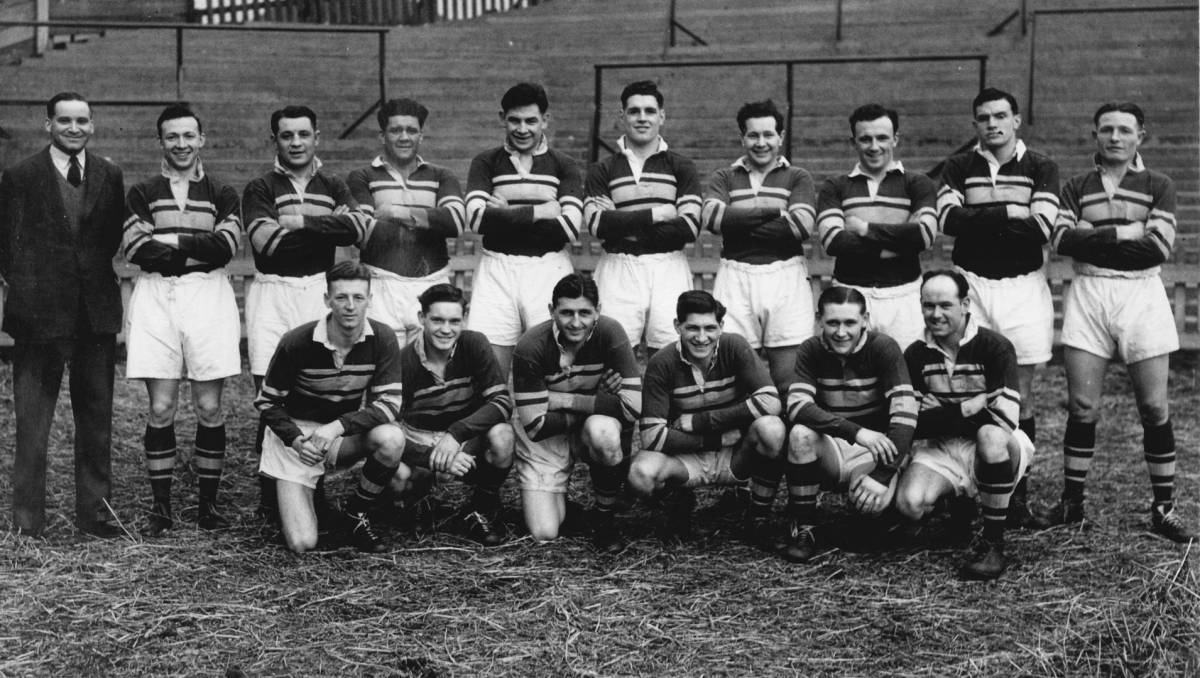
Three main prongs of future club policy emerged as the result of a very careful review which had been carried out during the early weeks of the close season: to discontinue the practice of signing players on short-term contracts; to strengthen the team when necessary through the acquisition of established players and to give the utmost priority to plans for the development of young local talent.
These main principles having been established the Chairman moved quickly carrying out four important transactions within five days. Clues and Cook signed ?life contracts?, as Williams had done some months earlier, but McMaster, who had already made plans for a world wrestling tour, was engaged for only a short term. Kearney, with whom the Club were unable to come to terms, decided to return to Australia. Two days before he sailed, Arthur Wood, Yorkshire County and English International hooker, was signed from Featherstone Rovers.
The immediate first team problems having been settled, activity still continued at full pressure: the reserve strength was improved through the signing of Geoffrey Moore, loose forward, from Bradford Northern; negotiations with Lewis Jones, the Welsh R.U. star, were re-opened; and special consideration was given to the scheme for training and coaching junior players. The seeds were being sown, and eighteen months later there was to be a rich harvest.
The opening match of the season brought a good win at Crown Flatt, but this excellent start was not maintained as, following a drawn game at the Barley Mow, we met with defeats at the hands of Warrington and Halifax. But the team obviously had a great potential of which there was ample evidence at Warrington in a glorious game which thrilled the Wilderspool crowd.
The tide turned on September 1st, on which date the team commenced a sequence of nine consecutive victories. Memories of that successful spell, which carried Leeds to the head of the league table, keep crowding in; Ken Ward?s debut against Batley at Headingley, after being signed only three hours before the match; Turnbull, gleefully diving in at the corner for the winning try against Workington after brilliant handling by Watson, Clues, Williams and Brown had taken the ball over three parts the length of the field; the crushing defeat of Huddersfield with Clues in his most rampant mood; and the laying of the Odsal ?bogey? with two victories there in four days.
Leeds, then, naturally turned out at Headingley as favourites in the semi-final of the Yorkshire Cup, but Wakefield Trinity, dour cup-fighters as ever and with many a surprise victory over Leeds to inspire them, pulled out that little extra to win by the odd point in thirty-five. Few who were present will ever forget those tense closing minutes as Leeds battered away at an unyielding defence.
The resumption of the League programme brought a further shock with an overwhelming defeat at Central Park where Wigan romped to victory by 44 points to 5, but a week later the team were back on the winning track with a convincing win over Bramley, in which match Jimmy Dunn, the young ?nursery? product, had a splendid debut, kicking eight goals and showing cool competence. This win touched off another successful spell which resulted in six victories from eight engagements. As one of the defeats sustained was against the New Zealand Touring Team, on which occasion Dennis Scholes, from Hull Kingston Rovers, made his first appearance in Leeds colours the team still held 2nd place in the table on December 14th. Another debutant during this period was Jerry Garbutt, winger, from the Castleford area.
Whatever hopes there may have been of achieving League honours had faded completely by the beginning of February, at which stage only two victories had been obtained from nine games. This complete reversal of form was largely due to injuries: Watson sustained a fractured ankle at Batley on Christmas Day; six more were unfit for the match on the following day against Wakefield Trinity but a ?shadow? team, which included another newcomer in Harold Oddy, riddled the Trinity defence and gained a magnificent victory; Williams finally broke down with a displaced cartilage in the Doncaster match. This latter game had, however, one compensating feature in the introduction of Keith McLellan, Australian centre, who had been recommended by that old Leeds favourite, Frank O?Rourke.
Almost before there was time to wonder what might have been if injuries had not crippled the team the R.L. Cup Competition was in full swing. Having eliminated Hull K.R. in the 1st Round we entertained Oldham at Headingley. The game was as thrilling as any ever seen on the Headingley grounds. Leading by ten points to two at the interval Leeds seemed to have the game well in hand, but Oldham attacked almost incessantly throughout the second half. After a penalty goal from Ganley, Warham scored a glorious try under the posts, and Ganley?s conversion brought Oldham to within a point of Leeds. Two minutes later Dunn increased the lead with a fine goal, but Oldham pressed more strongly than ever as Goldswain, scorning four reasonable chances of penalty goals, whipped up his men for one final effort. But the Leeds men held their ground, with Dunn, only eighteen years of age but playing like a veteran, saving the line on many occasions with glorious tackles, whilst Scholes miraculously pulled down Warham with the line only two yards away. Having won this match by 12 points to 9, Leeds went to Leigh, in the third round, in good heart, and there is little doubt that they would have reached the semi-final had it not been for an inexplicable decision made by the referee. At a crucial stage of the game an apparently good try, by Bartlett, was disallowed. During the remaining weeks of the season the management took every conceivable opportunity to ?blood? some of the extremely promising young players: Alec Dick, forward; Billy Pratt, scrum half; Bernard Prior, hooker; Jeff Stevenson, serum half, who had represented the R.A.F. at Twickenham; and Dudley Reyner, winger.
Five players had been transferred during the campaign: Clarkson, to Halifax; Procter, to Warrington; Ogden, to Featherstone Rovers; Grace and Gronow, to Doncaster.







